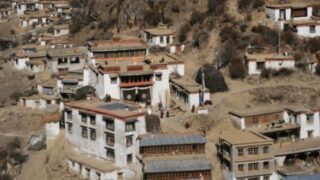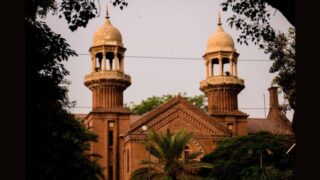Another man has been lynched in the Nankana Sahib District in Punjab. Do the anti-blasphemy laws inspire the criminals, or do the mobs influence the MPs who pass and support such laws?
by Marco Respinti


In Pakistan, religious irreverence against Islam is punished both by a set of statutes, collectively known as “laws against blasphemy,” which provide for the death penalty for blasphemers, and by bands of thugs who assault and kill people at will.
What would be interesting to ascertain is the relationship between the two: cause and effect, or simple coincidence? If a cause-and-effect relationship is found, it would be important to verify whether it is the “laws against blasphemy” that prompt bloody attacks against alleged blasphemers, or the unstoppable acts of gangs of unidentified villains did persuade Pakistan’s legislators to enact the statutes.
Reality, though, cannot wait for this dilemma to be solved. On February 11, 2023, a mob assaulted the police station of Warburton, a large town in the Nankana Sahib District in the Punjab province of Pakistan, and lynched a man accused of having desecrated the Holy Quran. (Incidentally, the area of the Nankana Sahib District is the most important religious site for the Sikh religion in Pakistan, while the Sikh holy city, Amritsar, lies in the Indian region of Punjab, the Punjab province having been divided between India and Pakistan since the Partition of India in 1947).
The International Human Rights Committee (IHRC)‒a non-profit and non-governmental organization focusing on freedom of religion or belief based in London‒originally identified the man who was brutally murdered in Warburton simply as “Mr. Waris.” “A video of the incident, shared on social media and confirmed as authentic by the police,” says a press release by the IHRC, “showed a man being dragged through the streets by his legs, stripped of his clothes and being pummeled by sticks and metal rods.”
It is not yet known whether Waris was a Muslim, a Christian or a Hindu, or whether he belonged to the Ahmadiyya community, the Muslim group that is regarded as heretic by conservative Sunni clerics and is harshly persecuted by the Pakistani government, “but he was killed in the name of Allah and Islam, which is totally against the teachings of Islam and the Quran,” Nasim Malik, Secretary General of IHRC, told “Bitter Winter.”
Later police reports indicated that the full name of the victim was Waris Ali and that he was accused of “performing black magic” by attaching a photo of his ex-wife on pages of the Holy Quran and burning them. The police also said Waris had been already jailed for alleged blasphemy in 2019, but had been declared innocent by a court of law.


Details on his alleged blasphemy remain unclear. “He was a human being, and this is enough,” continued Malik. “No human being should be tortured and killed in that way. We don’t know to which faith Waris belonged, but for sure in today Pakistan Christian, Hindus, and Ahmadis are all scared. They can be hit at any time in any place. And the fact that Waris was lynched and killed by a mob that assaulted the police station where he was detained is totally disturbing, and raises serious suspects on a police force that, to say the least, looks as rather inattentive.”
Two police officers have now been suspended, but it is too little too late after a man was brutally killed.
This is why the question on the relationship between the “laws against blasphemy” and the bands of criminals who assault and kill “blasphemers” is not a merely academic one.









